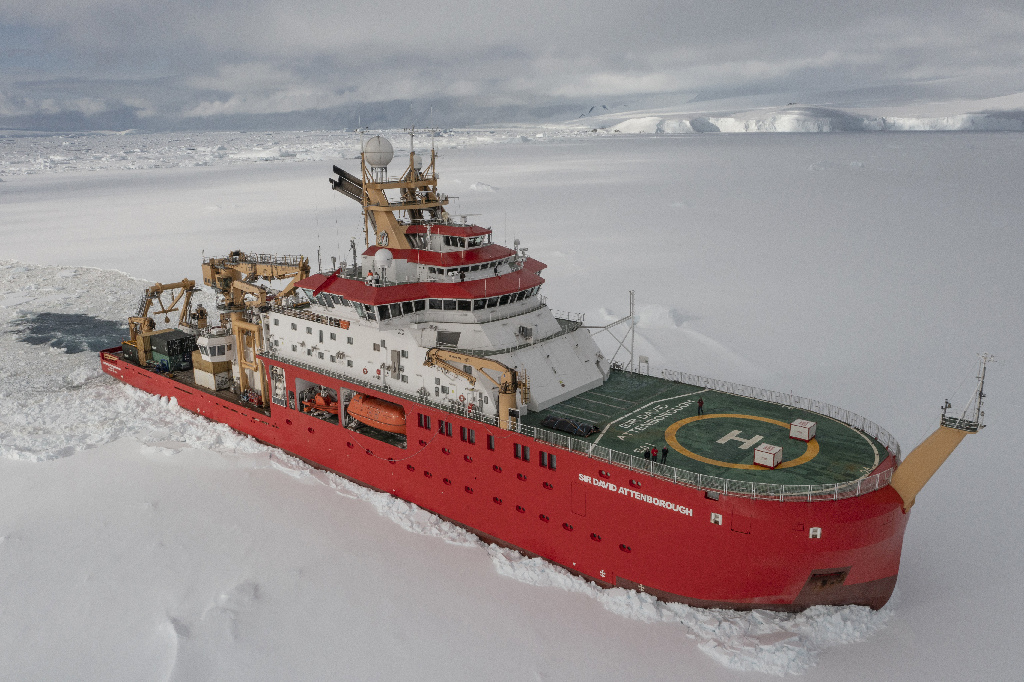THE BRITISH Antarctic Survey’s (BAS) Royal Research Ship (RRS) is, for the first time, receiving support from Scots tech company Clarus Networks Group.
The firm is helping to connect the advanced research vessel to high-speed internet.
RRS Sir David Attenborough is designed to carry out scientific research in some of the most extreme environments on Earth.
The vessel is currently at King Edward Point Research Station, operated by BAS, on the island of South Georgia, 860 miles south-east of the Falkland Islands.

As the consequences of climate change become increasingly visible, and with historically low winter sea ice levels, the BAS sees its work as more critical than ever.
The organisation is climate modelling and maintaining long-term datasets, which are seen as vital in understanding and addressing the challenges posed by the rapidly changing polar regions.
These remote Antarctic waters are known for their harsh environmental conditions, with extreme cold, hail, sleet, heavy rain, and gale-force winds posing constant threats to equipment and data communication.
Despite being one of the most advanced polar research vessels, in remote locations the crew aboard the RRS Sir David Attenborough previously used a two-way satellite ground station with a dish, called VSAT, which was first used at sea in the 1980s.
Clarus Networks Group specialises in connecting the world’s most remote places and installed state-of-the-art low Earth orbit satellite technology, Starlink Maritime, to deliver high-speed internet to the vessel.
Using Starlink Maritime, the Sir David Attenborough crew can now seamlessly transfer bandwidth-intensive data, enhancing the overall communication capabilities of the vessel by supporting real-time collaboration and data sharing among researchers.
The increased bandwidth has also improved crew welfare, providing a more robust and stable connection for communication with loved ones, accessing support systems, and enhancing the overall quality of life for the crew.
Clarus’ solution includes Starlink Flat High Performance Antennas, which are specifically designed to withstand extreme conditions and provide a constant stable connection.
Starlink Maritime offers download speeds of up to 220 Mbps and upload speeds of up to 40 Mbps at sea.
Using connectivity powered by Clarus, BAS is also set to test innovative technologies like the Windracers ULTRA Remotely Piloted Airborne System (RPAS) at Rothera Research Station, showcasing their commitment to pioneering solutions for polar data collection.
Dean Evans, Head of Communications Engineering, British Antarctic Survey, said: “Connecting people at our bases and on the ship to the rest of the world has never been easier – Starlink has transformed communication for everyone at BAS.
“Having a consistently fast and reliable connection has opened avenues that were not possible before with older satellite technology, and working in remote, isolated areas is now so much easier and safer for everyone.
“Faster speeds now possible with Starlink enables scientists to collect and deliver data more effectively and makes it easier for those in Antarctica to reliably stay in contact with friends and family.
“This technology makes managing our remote sites easier and more convenient, from at-a-glance updates to in-depth data mining and metrics.”